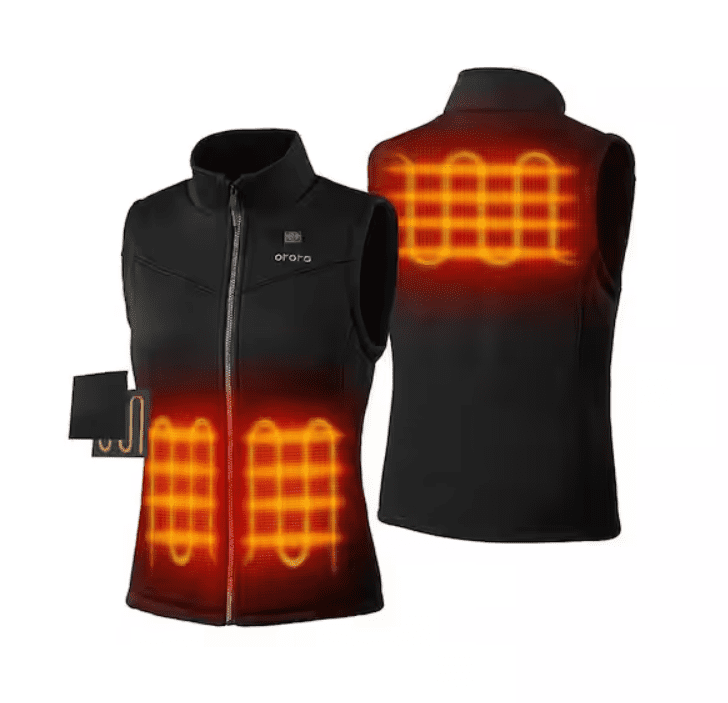
How Does Freezing Affect Lithium Batteries in Heated Clothing?
Lithium batteries are crucial for powering heated clothing, but freezing temperatures can significantly impact their performance. While lithium batteries do not freeze in the traditional sense, exposure to cold can hinder their efficiency and capacity. Understanding these effects is essential for maintaining battery health in heated garments.
How Do Cold Temperatures Impact Lithium Battery Performance?
Cold temperatures can severely affect lithium battery performance by reducing their efficiency and usable capacity. When exposed to temperatures below 32°F (0°C), the chemical reactions within the battery slow down, leading to diminished power output. This reduction occurs because the electrolyte becomes more viscous, impeding lithium ion movement and increasing internal resistance.Chart: Impact of Temperature on Lithium Battery Efficiency
| Temperature (°F) | Efficiency (%) | Usable Capacity (%) |
|---|---|---|
| Above 32 | 100 | 100 |
| 25 | 85 | 90 |
| 15 | 70 | 75 |
| Below 0 | <50 | <50 |
What Happens to Lithium Ions When Exposed to Freezing Conditions?
When lithium batteries are exposed to freezing conditions, lithium ions tend to form a plating layer on the anode’s surface instead of intercalating into it. This phenomenon, known as lithium plating, reduces the number of ions available for electrical flow, leading to a significant drop in battery capacity and overall performance.Chart: Effects of Freezing on Lithium Ion Movement
| Condition | Effect on Ion Movement |
|---|---|
| Normal Temperature | Efficient intercalation into anode |
| Below Freezing | Formation of plating on anode |
| Result | Reduced capacity and power output |
Why Is Charging a Lithium Battery Below Freezing Risky?
Charging a lithium battery at temperatures below freezing poses significant risks. The sluggish movement of lithium ions can lead to incomplete charging and increased internal pressure, which may cause physical damage or even thermal runaway. Additionally, charging a cold battery can result in lithium plating, further degrading battery health.
How Can You Protect Lithium Batteries from Cold Damage?
To protect lithium batteries from cold damage, consider these strategies:
- Insulated Storage: Use insulated cases or bags to keep batteries warm.
- Pre-Warming: Allow batteries to reach room temperature before use or charging.
- Avoiding Extreme Cold: Limit exposure to freezing conditions whenever possible.
Implementing these measures can help maintain battery performance during winter months.
What Are the Signs of a Damaged Lithium Battery After Freezing?
After exposure to freezing temperatures, watch for these signs indicating potential damage:
- Swelling or Bulging: Physical deformation may signal internal damage.
- Reduced Capacity: Noticeable drops in runtime or efficiency.
- Inability to Charge: Failure to accept a charge could indicate severe damage.
If any of these symptoms occur, discontinue use and consult a professional.
How Can Heated Clothing Help Mitigate Cold Effects on Batteries?
Heated clothing designed specifically for cold weather can help mitigate the adverse effects of low temperatures on lithium batteries. These garments often include insulation that retains heat around the battery compartment, ensuring that the battery operates within optimal temperature ranges. By maintaining warmth, heated clothing enhances battery efficiency and prolongs its lifespan.
Industrial News
Recent advancements in heated clothing technology have focused on improving battery performance in cold environments. Manufacturers are now integrating better insulation materials and advanced heating elements that not only provide warmth but also protect batteries from extreme temperatures. As outdoor activities gain popularity during winter months, these innovations aim to enhance user safety and comfort.
Expert Views
“Understanding how freezing temperatures affect lithium batteries is crucial for users of heated clothing,” says Dr. Michael Thompson, an energy storage expert. “By taking preventive actions such as proper storage and insulation, users can significantly extend battery life and maintain optimal performance even in harsh conditions.” He emphasizes that awareness is key to preventing potential hazards associated with cold weather usage.

